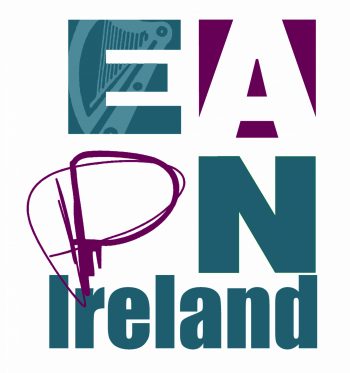The European Anti-Poverty Network has been very active in the past 30 years in keeping the eradication of poverty on the agenda in the EU and in Ireland. As 1 in 8 Irish people are at risk of poverty and almost 1 in 5 people at risk of poverty and social exclusion in the EU (EU 27), it seems there is still a long way to go. So, in its 30th year, EAPN is recommitting itself to work and campaign to bring about the changes to the structures and policies needed to ensure that everyone can achieve their rights and can live with dignity.
EAPN’s roots lie in the three EU Poverty Programmes which the European Commission funded from 1974 to 1992. These Programmes allowed anti-poverty groups, agencies, academics and institutions in the 11 EEC member countries at the time, including Ireland, to work together for the first time on projects and new ideas for tackling poverty. From this, a deeper understanding of poverty was developed, with pilot projects exploring new concepts such as social exclusion and approaches such as community development and partnership.
Some EU Governments felt the EU had no legal basis for working on issues linked to poverty. So, as the Poverty Programmes were being brought to an end, the European Commission worked with anti-poverty groups and experts to develop a European network that would work to keep the issue of poverty on the European agenda. So the EAPN was born at European level, its roots fixed in the communities experiencing poverty and member networks across different countries. Anti-poverty organisations and activists in Ireland played an important role in setting up EAPN, establishing EAPN Ireland as one of the founding members.
Today EAPN has a membership of 32 national networks and 13 other European networks. EAPN Ireland has also grown and has 170 members made up of local and national organisations and individuals committed to the eradication of poverty. Because of the cross-cutting nature of poverty, EAPN members comprise organisations representing a broad range of groups in society, including those who are unemployed. EAPN is also committed to the participation of those who have a direct experience of poverty and social exclusion: this informs how it works, its advocacy on how policy is made and implemented.
Poverty is about people not having the basic resources for a decent life including how adequate their income is, how accessible and affordable the public services are that they need, if someone can work, and can access a decent job. Different people, groups, and communities face greater risks of poverty and many also experience different forms of discrimination. Therefore, EAPN has focused a lot of its work on the need for the EU and member states to develop and implement plans which will be effective in addressing the complex causes of poverty.
EAPN, along with its allies, has had some success in getting the EU and Governments to develop anti-poverty plans. However, as in the last economic crisis and potentially in the current health pandemic, these plans and any progress are often lost, with the result that more people fall deeper into poverty. It is therefore really important that all decisions are looked at to ensure people are protected from falling into poverty and as recovery begins that no-one is left behind.
EAPN, in Ireland and across Europe, has worked on a range of specific issues. For example, ensuring that everyone should have access to the positive supports they need to get a decent job and be treated with dignity as they go about this. The network has always been clear that everyone, whether in work or not, should have an adequate income that enables them to have a decent life.
In recent years the EAPN has led a campaign to get the EU to take action and set a standard for social welfare supports that all EU countries should adhere to. This is in recognition that, while access to a decent job and services are important, social welfare should be there to provide those who need it with an adequate safety net, so that they can continue to live with dignity and participate in society.
As part of this campaign EAPN Ireland worked with the INOU, the Vincentian Partnership for Social Justice and other organisations to get the Irish Government to set social welfare levels at a level that is adequate to lift people above the poverty line and have a Minimum Essential Standard of Living. Despite succeeding in making this issue very visible to Government, the response has so far been disappointing.
The most recent positive EU development has been the agreement of the European Pillar of Social Rights in 2017, with 20 principles including on adequate income for all, supporting people to access a decent job and access to services. While implementing it is voluntary for each country, it is a positive move and based on rights. An action plan to implement it is being developed for next year and EAPN is very involved in trying to ensure this is as strong as possible.
For more on the European Anti-Poverty Network (EAPN) Ireland see www.eapn.ie and for EAPN (Europe) www.eapn.eu
